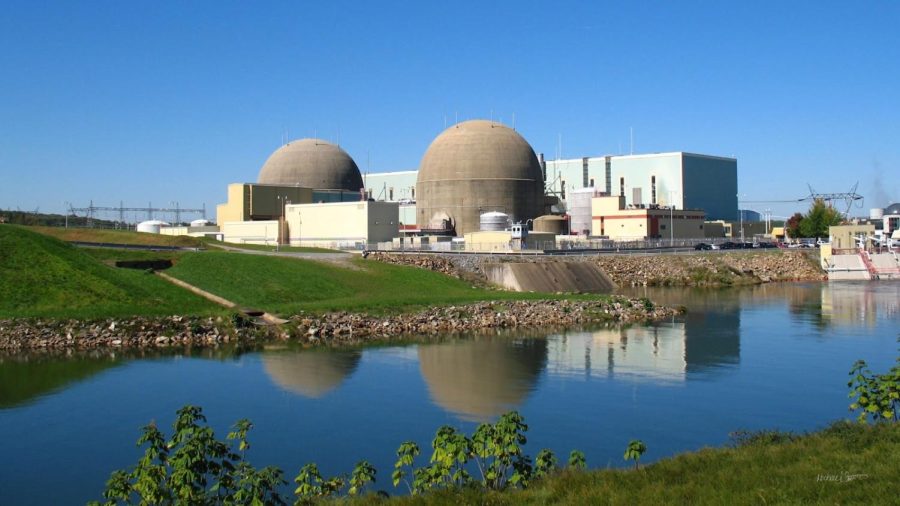Is fusion power our future power?
Photo courtesy of commons.wikimedia.org under Creative Commons License
North Anna Nuclear Generating Station in Louisa County, Virginia is a local fission-based power generator; if fusion energy is to become mainstream, it would likely phase out these stations, along with fossil fuels.
For the first time in history, fusion energy has been harnessed by scientists, introducing the newest form of clean energy to the world.
Fusion energy is much cleaner and safer to use compared to conventional fossil fuels and nuclear fission energy, which produce pollution and nuclear waste. Additionally, fusion energy is limitless, unlike current non-renewable energy choices.
“Even before this advancement happened, I would have said that nuclear power was an increasingly attractive option,” said Environmental Science teacher Austin Hollar. “However, fission [nuclear] power would have required renovating and updating facilities.”
The production of fusion energy does not raise the same concerns that fission energy does, such as nuclear disasters and nuclear waste. The potential for dangerous mismanagement of fusion energy is also lower than nuclear. Fusion energy has the potential to replace fission power and fossil fuels alike.
“Corporations should try to reduce the amount of fossil fuel burning plants in the U.S. and replace them with fusion energy. These advancements give us another option that’s even better,” said Hollar. “The only catch is that it will take some time to develop.”
Hollar predicts this process will take 20 to 30 years. The process of approval for fusion energy and the yet-to-be-developed technology contribute to this time. Despite the long wait, Hollar detailed how the rise of fusion technology can only brighten students’ hope during a dark time of climate anxiety.
“This is a [wonderful] alternative that I think can be very helpful,” said Hollar. “Working in conjunction with renewables can help to provide [clean] energy without loss of quality, while at the same time being more beneficial for the planet and alleviating a lot of the problems we have developed by becoming so dependent on fossil fuels.”
Senior Elijah Smith has a positive view of fusion power as well, citing the renewable aspect of it as evidence of its vitality.
“In regards to its sustainability, it is a great alternative to fossil fuels and nuclear fission. There are zero carbon emissions, only small amounts of hydrogen and helium. Furthermore, fuel is abundant, and there is [less] risk of catastrophic failure similar to nuclear power plants,” said Smith.
Fusion energy provides not only a sustainable option but a dynamic one.
“I was especially excited about fusion energy after its first successful net gain in energy. More energy was gained than was put into it, which seems too good to be true. However, it is legitimate. It is hard to overstate how much of a stride it is in our technological progress,” detailed Smith.
Scientists acknowledge that developing technology could take several decades until fusion energy can be used practically, but nevertheless, this is a groundbreaking advancement.
“The technology used to harness fusion energy is enormous and incredibly expensive, but after a few decades of development, I have no doubt that fusion technology will power almost everything.”
– senior Elijah Smith






